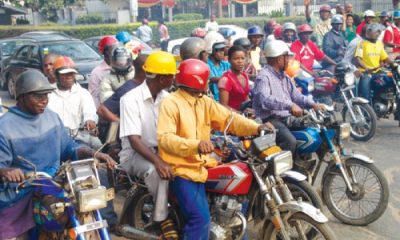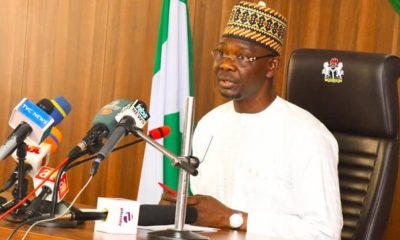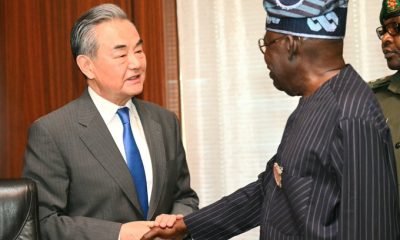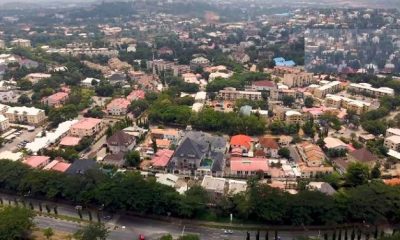Trending News
Nigerians to See Adjusted Telecom Tariffs in Coming Weeks, Says Minister
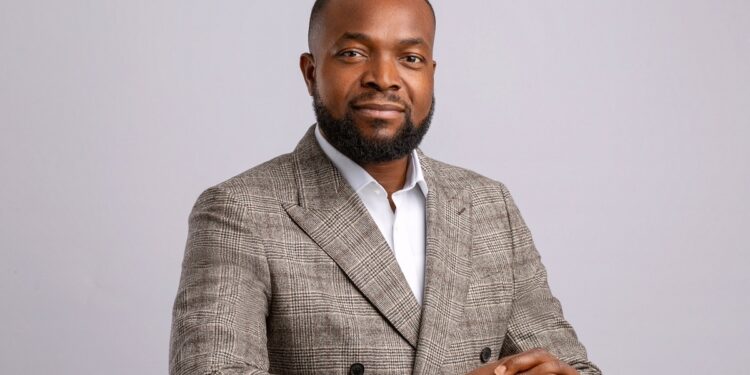
The Minister of Communications, Innovation, and Digital Economy, Dr. Bosun Tijani, has announced that Nigerians will soon experience adjusted telecom tariffs, though not by 100%.
The minister made this disclosure after a stakeholders’ meeting with Mobile Network Operators (MNOs) on Wednesday in Abuja.
Tijani revealed that ongoing consultations and engagements are taking place regarding the proposed tariff increase. While the MNOs have suggested a 100% hike, the minister assured the public that the increase will not reach that figure. He emphasized that the Nigerian Communications Commission (NCC) will soon release a clear directive on the new tariffs.
“Over the past few weeks, some companies have been requesting a 100% tariff increase, but it will not be by that extent. The NCC will come up with the exact details soon,” Tijani said. He also noted that the government aims to strike a balance by ensuring that the telecom sector continues to grow while also protecting consumers.
The minister further highlighted that the government would no longer leave infrastructure investments solely to private companies, as the country aims to improve the sector’s sustainability and growth. He acknowledged the importance of quality service and meaningful connectivity, stating that investments in infrastructure are crucial for delivering these services.
Dr. Aminu Maida, Executive Vice-Chairman of the NCC, stated that although no decision has been made yet regarding the exact percentage of the tariff increase, further stakeholder engagements will take place, with a final decision expected within the next week or two.
Maida also called for greater transparency, urging MNOs to simplify their pricing structures, making it easier for Nigerians to understand the charges for voice calls, SMS, and data. He expressed concern over the complicated pricing models, which often confuse consumers and fuel suspicion about data theft.
Representatives from telecom companies like Airtel Nigeria highlighted the need for tariff adjustments due to the rising operational and capital costs. They emphasized that such increases are necessary to ensure the long-term sustainability of the industry and to promote digital inclusion.
As the consultation process continues, Nigerians can expect more clarity on the exact adjustments to telecom tariffs in the coming weeks.
Job Opportunities
FG Unveils Free AI Academy for Nigerian Youths

The Federal Ministry of Innovation, Science, and Technology, in collaboration with the Commonwealth Secretariat and Intel Corporation, has launched a free Artificial Intelligence (AI) Academy to equip Nigerian youths with advanced technology skills.
The Academy offers free self-paced courses on AI fundamentals, ethics, tools, and applications. Participants will also compete for AI ambassadorial roles and internships with Intel Corporation, gaining valuable global experience.
This initiative aims to prepare Nigerian youths for leadership roles in the digital economy, boost their global job market competitiveness, and foster innovation.
Applications close on January 30, 2025. Register now at scienceandtech.gov.ng/academy.
Trending News
OPC, Riders Clash in Ado-Ekiti Over Officer’s Death
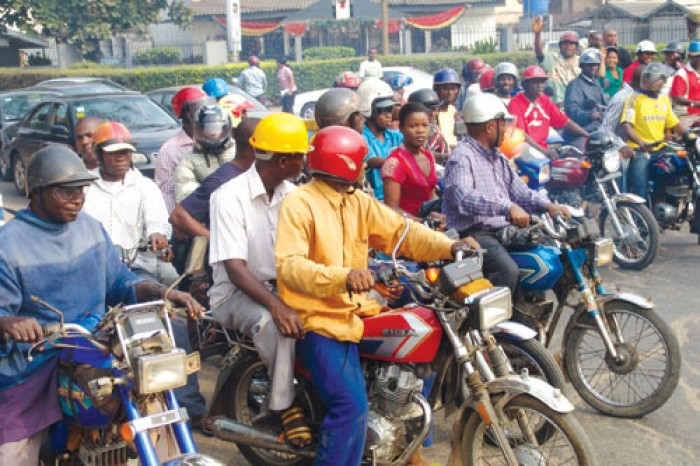
Tension gripped Ado-Ekiti, the Ekiti State capital, on Thursday when members of the Oodua People Congress (OPC) and motorcycle riders clashed violently over the death of a motorcycle ticketing officer.
The altercation escalated with both groups wielding dangerous weapons such as cutlasses and knives, resulting in multiple injuries.
According to an eyewitness, trouble began when the motorcycle riders accused an OPC member of being responsible for the officer’s death, which occurred near the Atikankan area of Ado-Ekiti.
The situation was brought under control after the timely intervention of the Rapid Response Squad (RRS) of the Ekiti State Police Command.
Ekiti police spokesperson, CSP Abutu Sunday, confirmed that six suspects were arrested in connection with the violence.
He stated, “Today, January 9, 2025, at about 11:20 AM, we received a distress call reporting that hoodlums were attacking and robbing innocent people in the Atikankan area.
Our operatives responded swiftly and arrested six suspects. They are currently under investigation, and efforts are ongoing to apprehend others involved.”
Trending News
Sule Exposes Truth About Illegally Recruited Teachers in Nasarawa
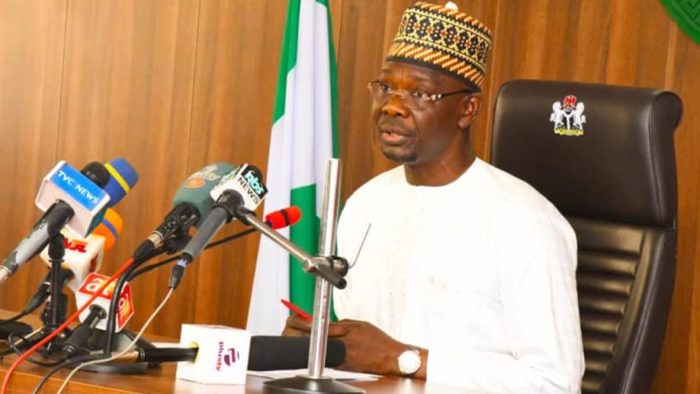
Nasarawa State Governor, Abdullahi Sule, has disclosed that about 80 percent of the illegally recruited secondary school teachers in the state are unable to write an acceptance letter, highlighting concerns over their qualifications.
During a meeting with a coalition of Christian denominations under the Christian Association of Nigeria (CAN) at the Government House, Governor Sule firmly rejected the request by the CAN’s Nasarawa State Chairman, Very Reverend Dr. Sunday Emma, to absorb the teachers into the state’s education system. He emphasized that many of these teachers lack the necessary credentials for effective teaching.
The governor cited reports indicating that many of the individuals who paid for the positions, which amounted to significant sums ranging from N600,000 to N700,000, were ill-equipped to perform their duties. He questioned the feasibility of hiring such individuals, stating, “These are people who would be paid less than 100,000 naira. I was told 80 percent of them could not even write acceptance letters. If we are helping them, we are not helping our educational system.”
Governor Sule further shared insights into the condition of the state’s educational sector, revealing that upon his assumption of office in 2019, he commissioned experts to conduct a baseline survey. The survey, which identified major gaps in infrastructure, curriculum, and teacher qualifications, led to the approval of the recruitment of 1000 teachers.
However, he expressed dissatisfaction with the Teachers’ Service Commission (TSC) for exceeding the approved number, employing over 1000 teachers without proper authorization. The governor also condemned the practice of recruiting individuals based on political connections, emphasizing that only qualified teachers should be hired for the benefit of the state’s education system.
Governor Sule also pointed out that many of the recruited teachers showed reluctance to work in rural areas, preferring urban centers instead. He underscored the importance of deploying teachers where they are most needed, such as in remote towns like Toto and Gudi.
In conclusion, the governor announced plans to conduct a fresh interview process for all recruited teachers, including those previously approved, to ensure that only the most qualified candidates are retained. He reiterated his commitment to reforming the education system, stressing that, “My dream is to get it right in Nasarawa State. But we can’t get it right except if we are honest with ourselves.”
Trending News
China to Consider Expanding Currency Swap Agreement with Nigeria
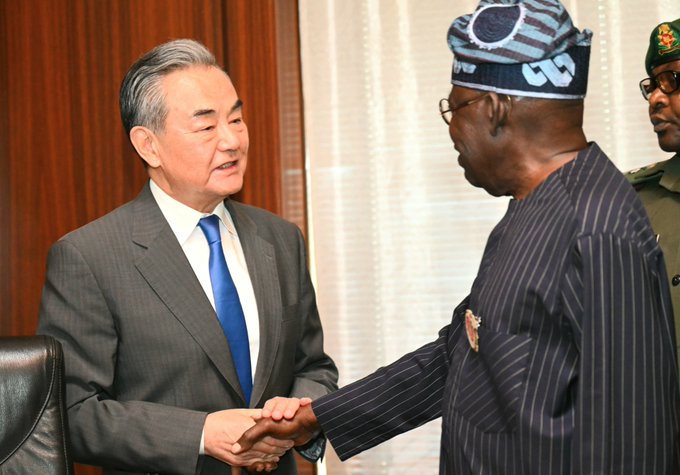
The People’s Republic of China has announced its willingness to consider Nigeria’s request to expand the bilateral currency swap agreement, a move aimed at strengthening financial cooperation between the two nations.
China’s Foreign Minister, Wang Yi, disclosed this on Thursday while briefing State House Correspondents after a meeting with President Bola Tinubu at the Aso Rock Villa, Abuja.
The currency swap agreement, initially signed in 2018 between the People’s Bank of China and the Central Bank of Nigeria, was valued at CN¥15 billion, equivalent to approximately N720 billion or US$2.5 billion at the time. It was designed to reduce reliance on the US dollar, stabilize Nigeria’s foreign reserves, and promote trade and investment between the two countries.
Wang Yi emphasized the ongoing momentum in bilateral financial relations, encouraging Nigeria to explore issuing Panda bonds in China’s domestic markets. Panda bonds are renminbi-denominated bonds issued by foreign entities in China, allowing countries and corporations to raise capital directly within China while diversifying funding sources.
“The currency swap agreement shows the depth of our financial cooperation,” Wang stated. “We will favorably consider Nigeria’s request to increase the currency swap line. Additionally, we welcome Nigeria to issue Panda bonds in China’s markets, as we have confidence in Nigeria’s economic credibility.”
Wang highlighted that such initiatives could generate significant revenue for Nigeria and support key infrastructure projects, such as railway modernization. He also pointed to the recent financial backing from Chinese banks for Phase III of Nigeria’s railway project as evidence of the strong economic collaboration between the two nations.
Strengthening African Security and Development
Beyond financial cooperation, China and Nigeria reaffirmed their commitment to African-led solutions for security challenges on the continent. Both nations rejected external interference in Africa’s internal affairs, advocating for local and regional approaches to peacekeeping and counterterrorism.
Wang Yi pledged Beijing’s full support for Africa’s security initiatives, including a CN¥1 billion military assistance package. This package involves training 6,000 military personnel and 1,000 police officers across various African countries and bolstering the African Standby Force and rapid response units.
“China firmly supports Africa in building its peace and security capacity,” Wang said. “We will work with Africa to implement the Global Security Initiative and provide military assistance to enhance regional stability.”
He added that China would continue to advocate for Africa’s interests at the United Nations Security Council and remain a key contributor to peacekeeping efforts on the continent.
Nigeria’s Push for Local Military Production
Nigeria’s Foreign Minister, Yusuf Tuggar, echoed the need for self-reliance in addressing the nation’s security challenges. Tuggar emphasized Nigeria’s focus on domestic production of military equipment with China’s collaboration to reduce dependency on foreign procurement.
“We want to work with China to domesticate the production of military equipment, both kinetic and non-kinetic,” Tuggar said. “This will ensure we address our security challenges swiftly and efficiently without the delays associated with external procurement.”
He reiterated Nigeria’s leadership role in promoting peace and stability in West Africa and the Sahel region, stressing the need for collaborative efforts among neighboring countries.
A Growing Partnership
The discussions between Nigeria and China underscore the deepening economic and security ties between the two nations. From expanding the currency swap agreement to exploring new financial instruments like Panda bonds and advancing regional security initiatives, both countries are positioning their partnership as a cornerstone for mutual growth and development.
Wang Yi expressed optimism about the future of the relationship, stating, “China is committed to supporting Nigeria in its journey toward economic stability, infrastructure development, and regional leadership. Together, we can achieve strength through unity and cooperation.”
-
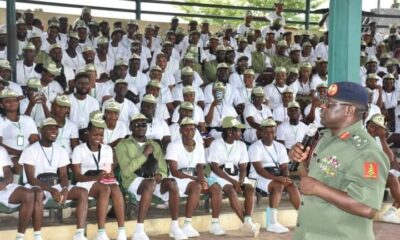
 Trending News6 months ago
Trending News6 months agoNYSC DG Cautions Corps Members Against Unauthorized Travel
-
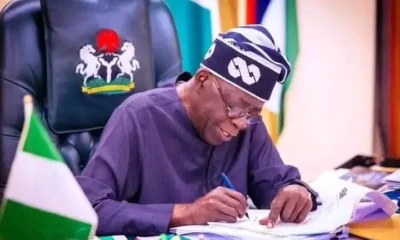
 NYSC NEWS6 months ago
NYSC NEWS6 months agoFormer NYSC Director Joins APC, Backs Tinubu
-
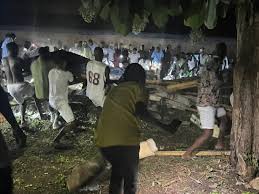
 NYSC NEWS6 months ago
NYSC NEWS6 months agoCorps Members Hurt in Structural Incident at Ekiti NYSC Camp
-
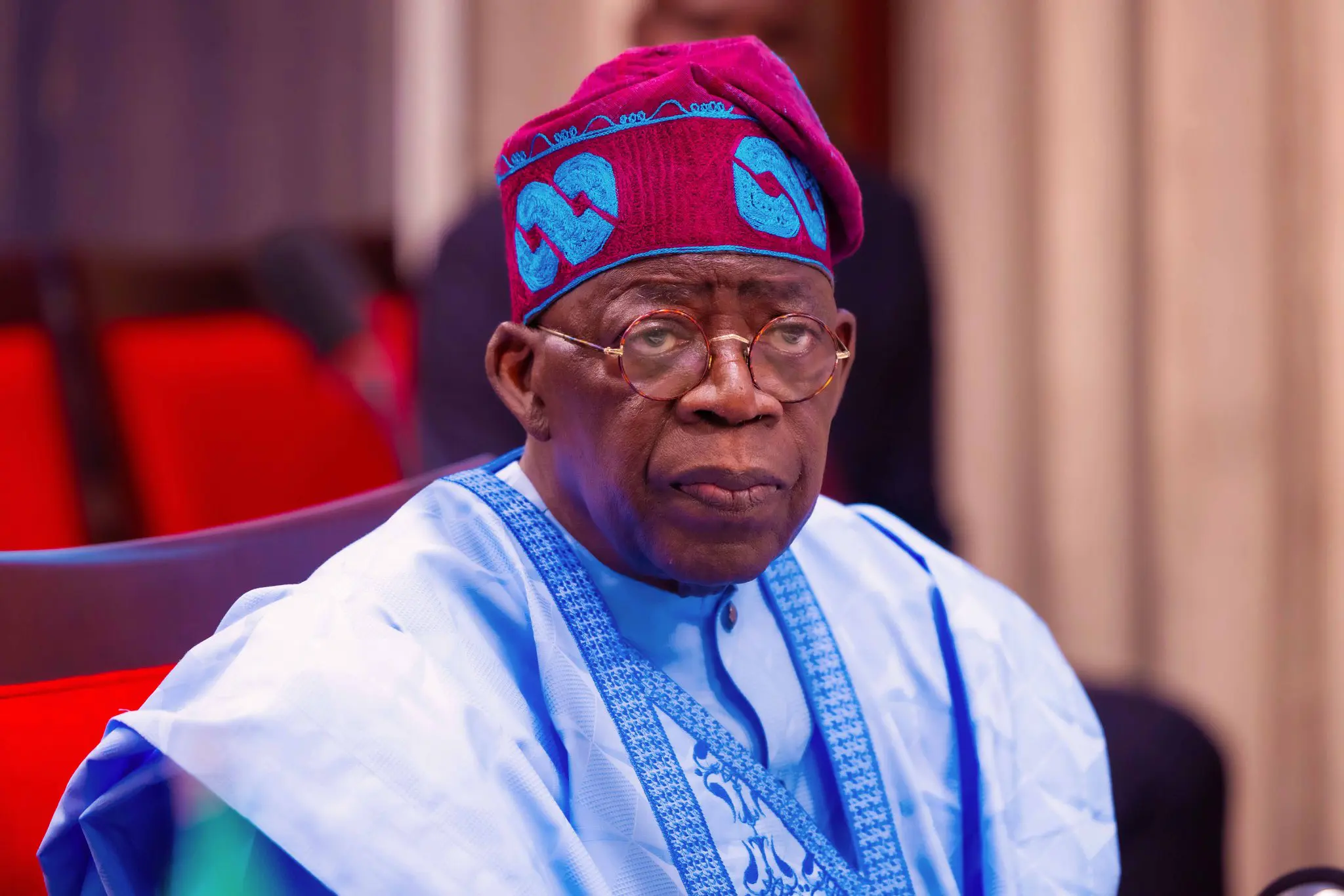
 NYSC NEWS9 months ago
NYSC NEWS9 months agoTinubu Advocates Inclusion of NOUN Graduates in NYSC
-
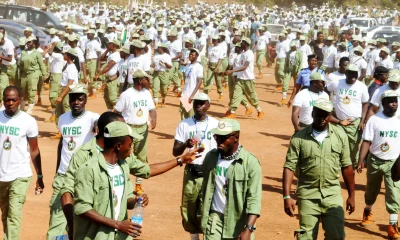
 Trending News6 months ago
Trending News6 months agoMy journey to NYSC orientation camp and fear of the unknown
-
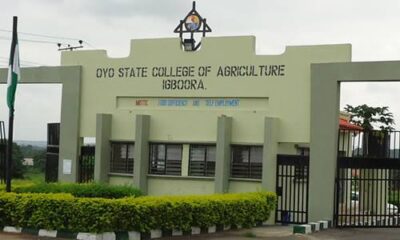
 NYSC NEWS6 months ago
NYSC NEWS6 months agoOyo Agric College Assures Graduates on NYSC Mobilisation
-
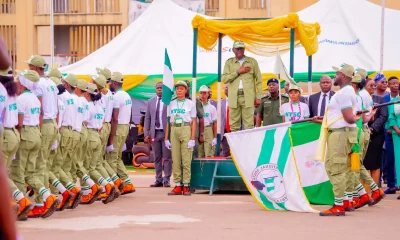
 NYSC NEWS6 months ago
NYSC NEWS6 months agoGovernor Sanwo-Olu Pledges N100,000 to Each NYSC Member in Lagos
-
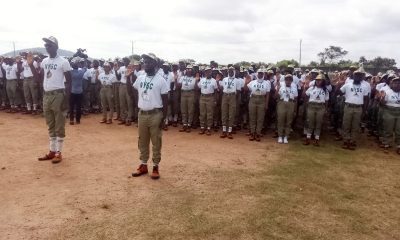
 Trending News6 months ago
Trending News6 months agoMy Transformative NYSC Experience, Abraham Narrates



